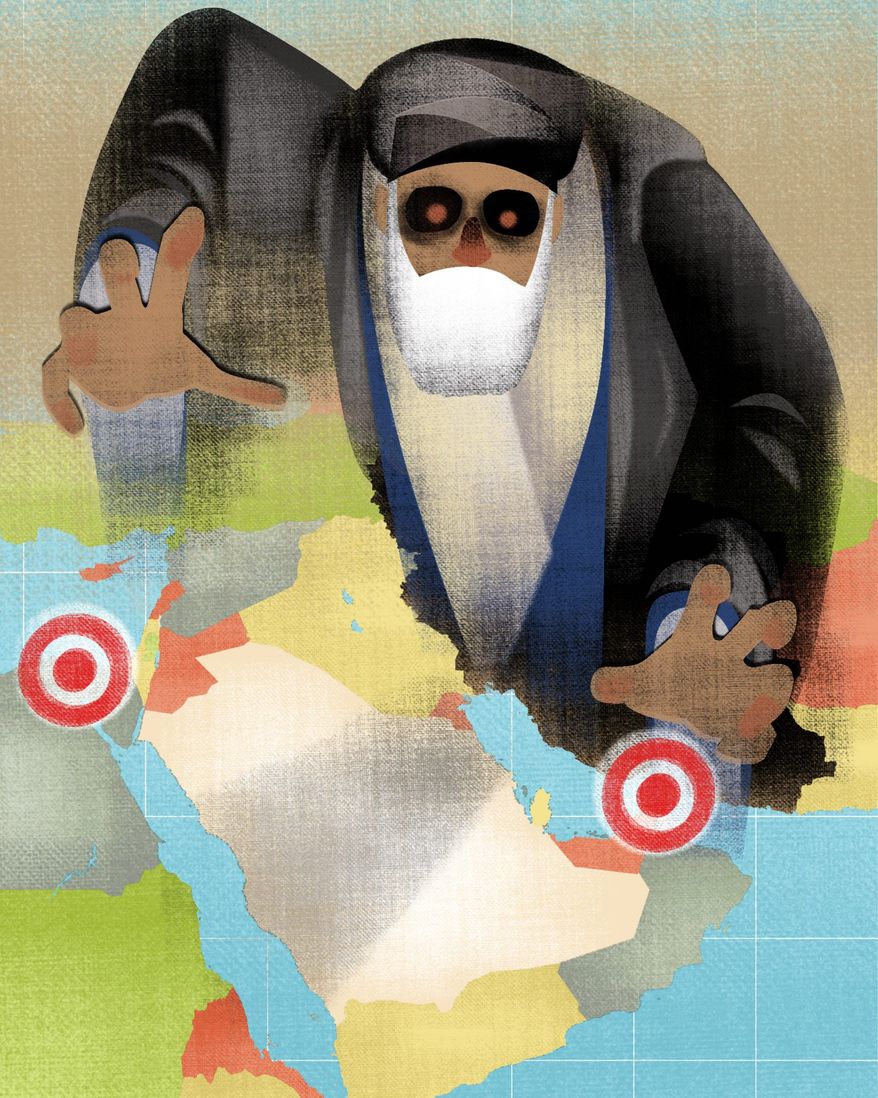December 12, 2018 | The Washington Times
Punishing the Saudi prince
Ceding Yemen to Iran’s ruling ayatollahs is not the way to do it.
December 12, 2018 | The Washington Times
Punishing the Saudi prince
Ceding Yemen to Iran’s ruling ayatollahs is not the way to do it.
ABU DHABI – Consult a map of the Middle East. Locate the Strait of Hormuz, a narrow sea passage separating the Arabian Peninsula from Iran, and connecting the Gulf — whether you call it the Persian Gulf or the Arabian Gulf is a thorny question — to the open oceans beyond.
The Strait of Hormuz is among the world’s most strategic waterways, essential to the health of the global economy. More than a third of seaborne oil shipments and 20 percent of the oil traded internationally pass through it.
The U.S. Navy – specifically the Bahrain-based Fifth Fleet – keeps this sea lane open, frustrating Iran’s rulers who claim it as their private lap pool. They menace American vessels there – though less frequently since Donald Trump replaced Barak Obama in the White House.
Look at the map again. Locate the Bab-el-Mandeb, another strategic strait. It separates Yemen and the Arabian Peninsula from Africa, and guards the entrance to the Red Sea at the northern end of which is the Suez Canal, also a vital chokepoint. Iran’s rulers covet the Bab-el-Mandeb as well.
Their maritime goals support their hegemonic ambitions. The last thing American leaders should do is help them. Yet a bipartisan majority of senators is working on a resolution that would do exactly that by withdrawing U.S. military assistance to the Saudi-led coalition fighting Iranian-backed Houthi rebels in Yemen.
How did this come about? On Oct.2, Jamal Khashoggi, a Saudi dissident who for two years had been contributing opinion columns to the Washington Post, was murdered in the Saudi consulate in Istanbul.
The Saudi government has charged 11 individuals in connection with the killing. The Trump administration has sanctioned 17 persons thought to be implicated.
Many members of Congress regard that as woefully insufficient. They believe, as does the CIA, that Crown Prince Mohammed bin Salman, Saudi Arabia’s de facto ruler, ordered the hit – or at least that the buck stops on his desk, or throne or yacht or wherever.
Fair enough but let me state what ought to be obvious: To punish Saudi royals by rewarding Iranian ayatollahs makes no sense.
It is not in the U.S. national interest for the Houthis to prevail in Yemen, thereby allowing Iran’s rulers to expand their empire, threaten Saudi Arabia’s southern underbelly (from which the Houthis already fire missiles at Riyadh), and station forces adjacent to the Bab-el-Mandeb.
Consider what’s happened in this region over the last few years: Lebanon, for all intents and purposes, is ruled by Hezbollah, Tehran’s proxy. Iranian military forces and mercenary militias have propped up Syrian dictator Bashar al-Assad. Iranian influence in Baghdad has increased since Mr. Obama withdrew American troops in 2011. The clerical regime works closely with Hamas and Palestinian Islamic Jihad in Gaza.
Anyone with a lick of sense understands why preventing the Islamic State from establishing a Middle Eastern caliphate is in the American national interest. How many licks does it take to grasp that it’s no less imperative to prevent the Islamic Republic from achieving the same objective (though the preferable Shia term would be imamate)?
The royal families who rule the United Arab Emirates and Bahrain harbor no illusions about the threat Tehran poses to them. That has been made abundantly clear in conversations I’ve had over recent days with senior officials in both countries, including top officers in the UAE military whose troops are fighting in Yemen.
Commanders with the U.S. Fifth Fleet also made plain why it’s essential to contain – if not roll back — the imperialist and avowedly jihadist Islamic Republic of Iran.
The conflict in Yemen has been devastating for the civilian population. A negotiated solution would be welcome. But the Houthis chant, “Death to America, Death to Israel, a Curse Upon the Jews, Victory to Islam,” and according to an Associated Press investigation practice “extreme torture” — including hanging victims “from chains by their wrists or genitals for weeks at a time.”
We may safely conclude that these are not exactly let’s-make-a-deal kind of guys. Can anyone seriously believe that they will be more amenable to compromise if the military pressure on them is eased?
House members, before deciding whether to support whatever resolution the Senate passes, would be well-advised to spend a few minutes studying a map of the Middle East, and thinking about what it will mean if the region falls under the boot heel of an oil-rich, jihadist theocracy that intends to become nuclear-armed. (Mr. Obama’s deal with Tehran was meant only to delay, not prevent that eventuality.)
There are other ways to punish the Saudis. Or perhaps a better idea: Use this crisis instead to press the Saudis for serious reforms.
Final point: Despots kill dissidents. Always have. Always will.
More than ten critics of Russian President Vladimir Putin have died in suspicious circumstances. There has been a string of recent Iranian terrorist plots in Europe. And let’s not forget the foiled 2011 Iranian plot to assassinate the Saudi ambassador in a Georgetown restaurant. Meanwhile, both Iran’s rulers and Mr. Putin share culpability with Mr. Assad for the slaughter of half a million men, women and children in Syria.
In these and many other instances, the so-called international community responded fecklessly. It would not be surprising if the 33-year-old crown prince – who though wealthy and powerful is by no means worldly – had expected the killing of Mr. Khashoggi to be treated with similar indifference.
Clifford D. May is president of the Foundation for Defense of Democracies and a columnist for The Washington Times.
